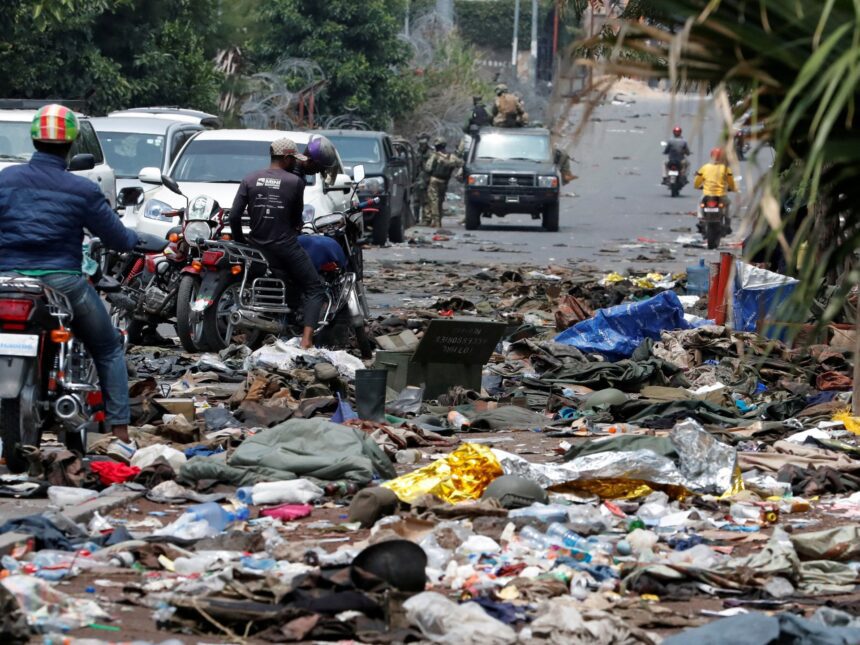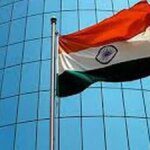Following a two-day break in hostilities, the M23 rebels have once again launched attacks on armed forces in the eastern part of the Democratic Republic of Congo.
The rebel fighters initiated the attack near the village of Ihusi at dawn on Tuesday, which is situated 40km (25 miles) from the strategically important military airport in Kavumu and approximately 70km (43 miles) from Bukavu, the capital of South Kivu province.
The M23, which claims to be safeguarding the interests of ethnic Tutsis, began advancing towards South Kivu after capturing Goma in North Kivu in a violent raid that resulted in the deaths of thousands last month. This resurgence in hostilities comes despite calls from 24 regional leaders for an immediate ceasefire.
Bukavu has been bracing itself for a potential M23 offensive, with schools closing on Friday as residents started fleeing and shops shutting down due to fears of an imminent attack.
Reported from Nairobi, Kenya, Al Jazeera’s Malcolm Webb stated that the residents of Bukavu were anxiously waiting to see if the M23, along with its Rwandan allies, would succeed in advancing towards Bukavu.
Meanwhile, individuals fleeing a displacement camp in the west of Goma, the capital of North Kivu, claimed that an M23 colonel had visited the camp on Sunday and ordered them to leave within three days.
In a statement released on Monday, the M23 denied these accusations, stating that the people were leaving the Bulengo camp voluntarily to return to their “now-secure homes in liberated areas.”
Many individuals have been residing in the overcrowded camp for up to two years and are uncertain if they have homes to return to, according to Webb. “Most of them seem to be packing up and starting their journey. Some are waiting to see if and when they will be forced to leave,” he added.
A group of 24 East and Southern African leaders called for an “immediate and unconditional” ceasefire in the DRC within five days on Saturday, voicing concerns that the conflict could spill over into neighboring nations.
According to the UN, the conflict has displaced 6.7 million individuals within the country, with the majority coming from the North and South Kivu provinces where violence and insecurity have escalated since 2021, coinciding with the resurgence of the M23 rebels.
The recent violence has led to over 500,000 people being displaced from their homes since the beginning of the year, placing immense pressure on overcrowded and under-resourced displacement camps.
Early this month, the UN estimated that clashes between the M23 and Congolese forces in Goma resulted in nearly 3,000 fatalities.
The DRC has accused Rwanda and the rebels of plundering the country’s resources, which include extensive rare earth deposits. Rwanda has refuted these allegations.
“We strongly oppose the DRC’s efforts to blame Rwanda for the instability in eastern DRC,” stated Rwanda’s ambassador to the UN in Geneva, James Ngango, during an emergency meeting of the Human Rights Council.
“However, the immediate danger that the current situation poses to Rwanda is clear. Following the fall of Goma, new intelligence indicates an imminent, large-scale attack against Rwanda,” he added, mentioning that Kinshasa and its allies had stockpiled weapons in and around the Goma airport.
CODECO attack
In another part of the DRC, fighters from the CODECO armed group, one of the many groups vying for control over land and resources in the east, conducted an attack on the Djaiba group of villages in the Djugu territory of Ituri province, resulting in the deaths of at least 35 civilians.
Jean Vianney, the head of the village group, reported that the attacks began at 8pm on Monday, with many individuals “burned to death in their homes.”
Webb mentioned that some officials in the area claimed that the death toll could be as high as 50, including children. He noted that the armed group holds sway over a section of Ituri province, controlling numerous gold mines.
In the past, the UN has accused CODECO of carrying out attacks against other communities, including Hema herders, which could constitute war crimes and crimes against humanity. The majority of residents in the Djugu territory are Hema.









